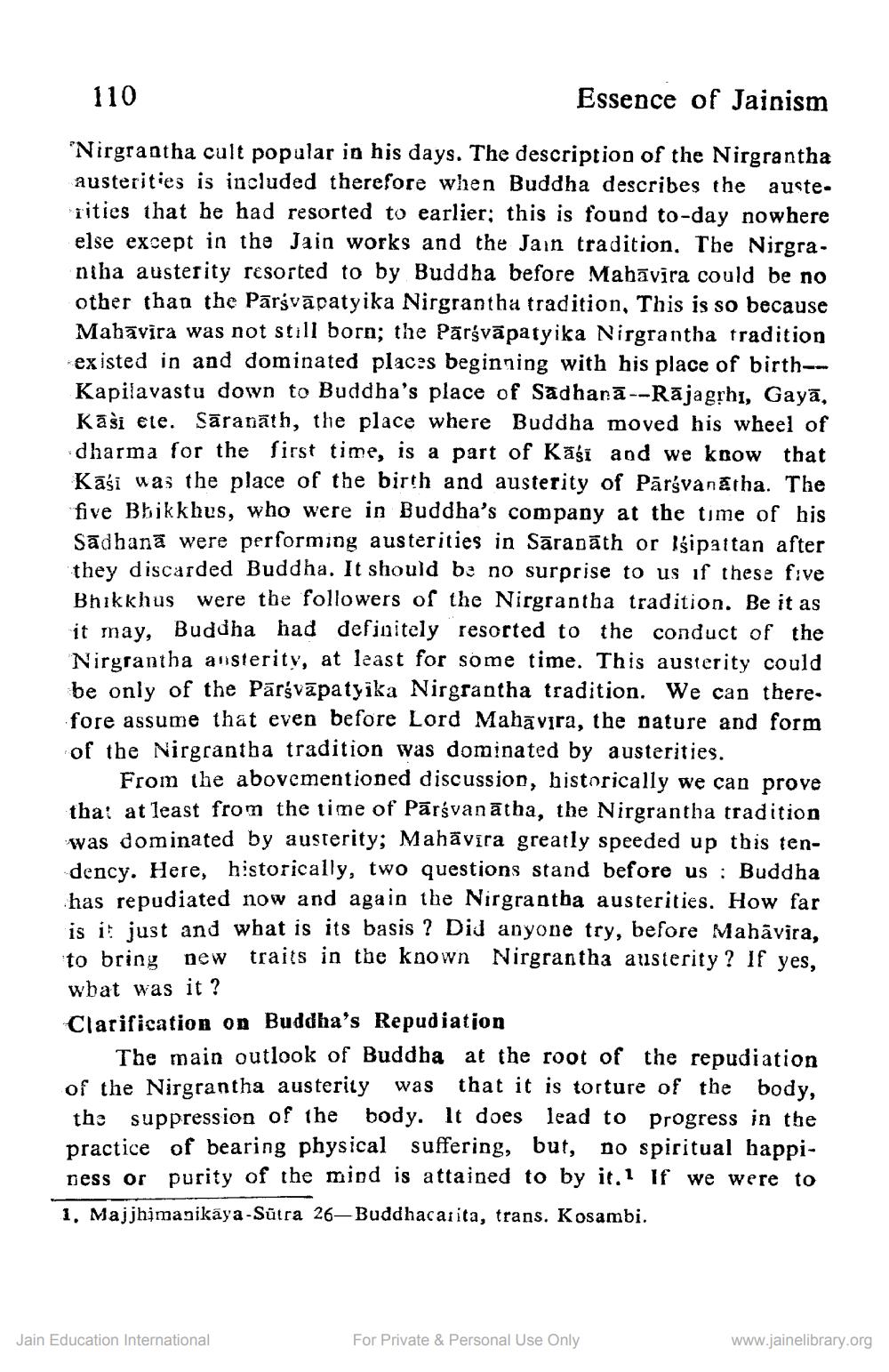________________
110
Essence of Jainism
'Nirgrantha cult popular in his days. The description of the Nirgrantha austerities is included therefore when Buddha describes the auste. rities that he had resorted to earlier; this is found to-day nowhere else except in the Jain works and the Jain tradition. The Nirgra. ntha austerity resorted to by Buddha before Mahāvira could be no other than the Pārsvāpatyika Nirgrantha tradition, This is so because Mahāvira was not still born; the Pārsvāpatyika Nirgrantha tradition existed in and dominated places beginning with his place of birth-- Kapilavastu down to Buddha's place of Sadhana--Rājagrhi, Gayā. Kaši ele. Sāranāth, the place where Buddha moved his wheel of dharma for the first time, is a part of Kāģi and we know that Kasi was the place of the birth and austerity of Pārsvanatha. The five Bhikkhus, who were in Buddha's company at the time of his Sadhana were performing austerities in Sāranāth or Isipattan after they discarded Buddha. It should be no surprise to us if these five Bhikkhus were the followers of the Nirgrantha tradition. Be it as it may, Buddha had definitely resorted to the conduct of the Nirgrantha ansterity, at least for some time. This austerity could be only of the Pārsvāpatyika Nirgrantha tradition. We can there. fore assume that even before Lord Mahāvīra, the nature and form of the Nirgrantha tradition was dominated by austerities.
From the abovementioned discussion, historically we can prove tha: at least from the time of Pārsvanātha, the Nirgrantha tradition was dominated by austerity; Mahāvīra greatly speeded up this tendency. Here, historically, two questions stand before us : Buddha has repudiated now and again the Nirgrantha austerities. How far is it just and what is its basis? Did anyone try, before Mahavira, to bring new traits in the known Nirgrantha austerity? If yes, wbat was it ? Clarification on Buddha's Repudiation
The main outlook of Buddha at the root of the repudiation of the Nirgrantha austerity was that it is torture of the body,
the suppression of the body. It does lead to progress in the practice of bearing physical suffering, but, no spiritual happiness or purity of the mind is attained to by it. If we were to 1. Majjhịmanikaya-Sūtra 26-Buddhacarita, trans. Kosambi.
Jain Education International
For Private & Personal Use Only
www.jainelibrary.org




